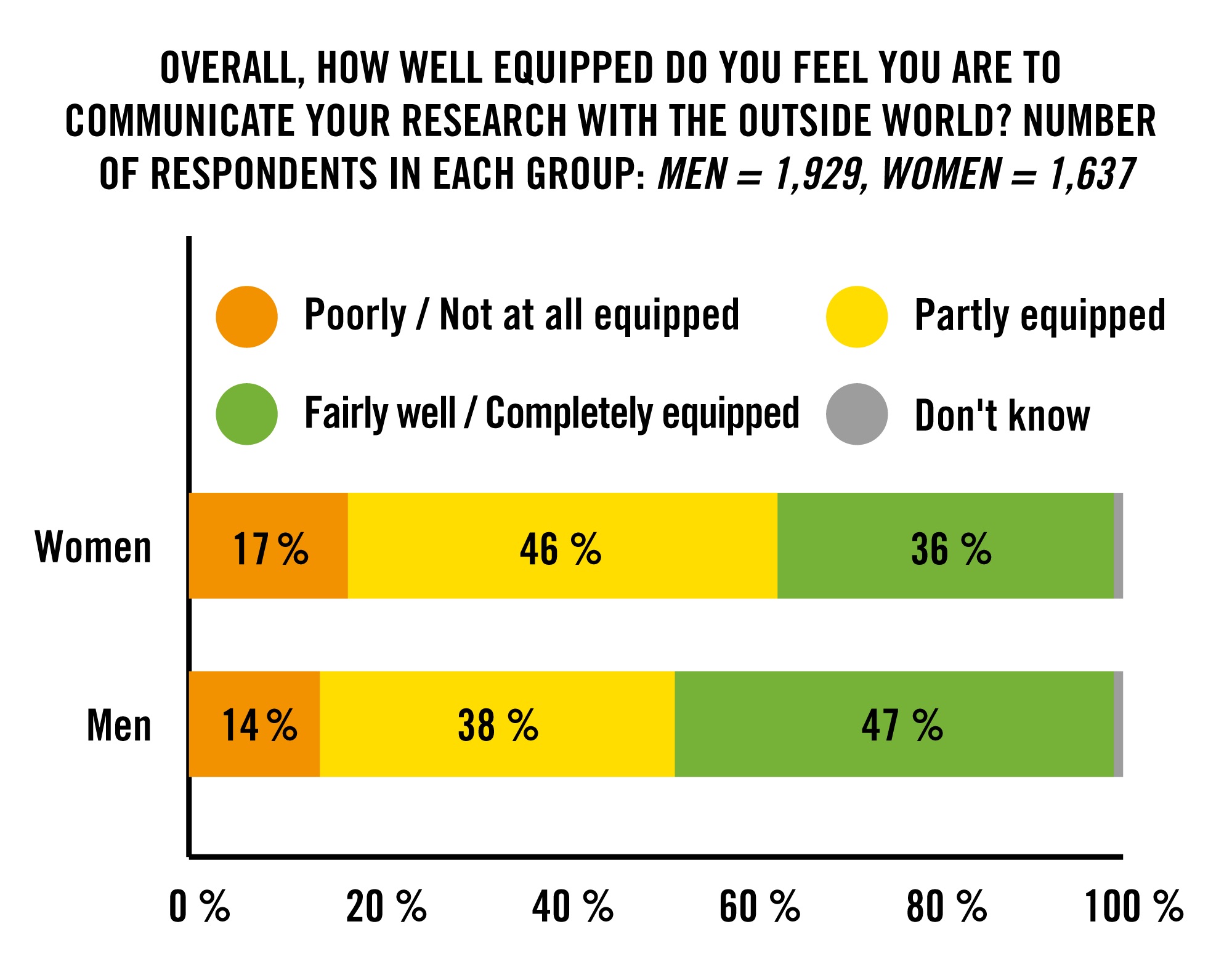Press release 25 September 2019
Sweden’s researchers want to communicate more with the outside world but are hindered by both internal and external obstacles, according to a survey of 3,700 researchers at Swedish universities and colleges. The survey is the largest of its kind conducted to date in Sweden.

”Today’s researchers are expected to communicate their research not just within but also outside the scientific community. It is therefore important to find out researchers’ views on communication and the barriers and opportunities that they experience,” said Martin Bergman, a researcher at the Swedish non-profit organisation VA (Public & Science) and co-author of the report.
Two-thirds of researchers say that their communication with the outside world is hindered by too many other tasks that have higher priority. Other perceived barriers are a lack of dedicated resources for communications work, and difficulties finding suitable opportunities and target audiences to communicate with. Five percent are held back by concerns about threats and harassment. This concern is particularly high among women under 30 years of age, of whom 12 percent say that it is an important barrier.
”Certain research findings can give rise to heated debate. Of course, research must be able to be debated within society, but if researchers are avoiding communicating their findings because they are concerned about reactions from the outside world, it is a alarm bell that needs to be taken seriously,” said Gustav Bohlin, a researcher at VA (Public & Science) and co-author of the report.
The most important concrete measure to get researchers to communicate more is having specifically dedicated resources for communication work, according to the researchers. Also requested are more invitations to participate in communication activities and for communications work to be more highly valued.
Four out of ten researchers feel well equipped to communicate their research to the outside world. The most important target audiences to communicate to are decision-makers and politicians, followed by the general public and professional groups directly affected by the research.
Open science is a system aimed at making research more transparent and accessible to the whole of society. In 2016, countries in the European Union decided that the EU should transition towards a system of open science. Nearly two-thirds of the researchers have heard of the term. The majority believes that the benefits of open science outweigh the disadvantages. However, there is disagreement as to whether the system will make a researcher’s work easier. One third think it will make things easier, another third that it will make it more difficult, and the final third that it will neither make it easier nor more difficult. Forty percent of postgraduate students believe that open science will make their work easier compared to 24 percent of professors.
The survey was conducted in the spring of 2019 and involved 3,699 researchers from 31 Swedish universities. The study is a collaboration between the research councils Forte, Formas, Vinnova and the Swedish Research Council, Riksbankens Jubileumsfond and the non-profit organisation VA (Public & Science). The report is written by Dr Gustav Bohlin and Dr Martin Bergman, who both work as researchers at VA (Public & Science).
For more information please contact:
Gustav Bohlin, the researchers at VA responsible for the survey.
